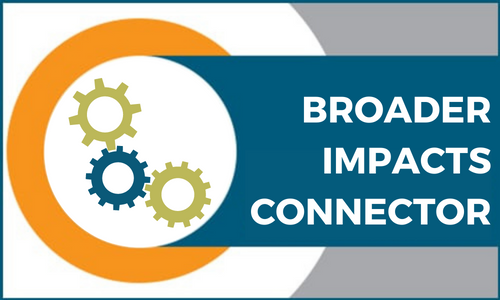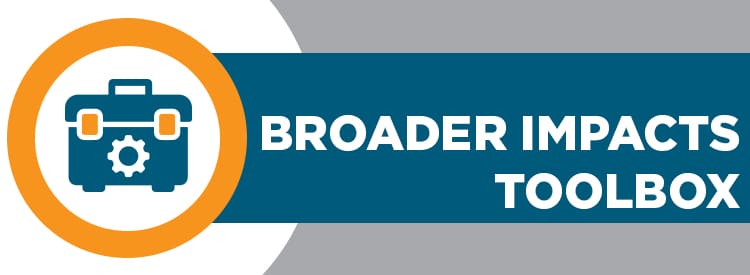As defined by in the National Science Foundation’s Perspectives on Broader Impacts Report, broader impacts relate to a project’s “potential to benefit society and contribute to the achievement of specific, desired societal outcomes.”
Researchers are encouraged to think big about how their work can impact—and be impacted by—our shared society and all its diversity, its strengths and weaknesses, its potential and its problems. Research Development curates a set of resources, including customizable text, potential partners, and best practices, to help researchers maximize the impact of their work.
Explore the toolboxes on the Employee Hub, reach out directly to toolbox managers for a consultation, or identify more resources through the Broader Impacts Connector.

The Broader Impacts Connector identifies resources that can be leveraged to increase the societal impact of research, scholarship, and creative activities.
